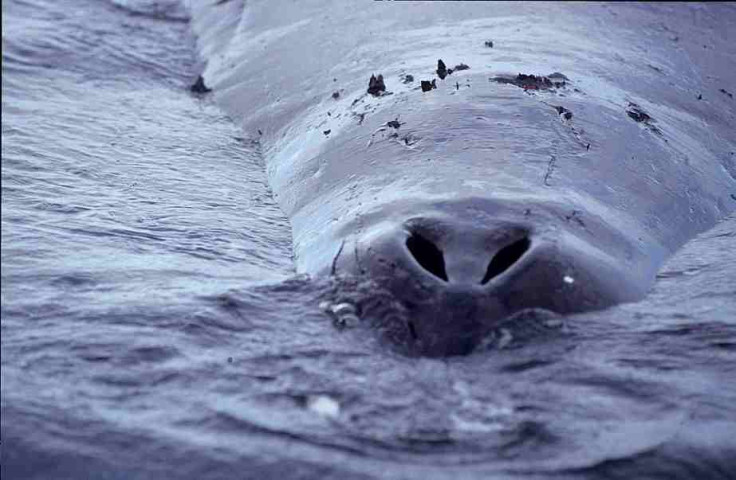Bowhead Whale Genome May Hold Clues To Human Longevity

The secret to anti-aging may lie in the genes of a particularly robust whale species. Bowhead whales can reach 200 years of age and are the longest living mammal on earth. They spend their lives relatively disease-free, including from cancer, a fact that scientists say could prove useful in studies on human longevity. Researchers from the University of Liverpool in the United Kingdom sequenced the whale’s genome for the first time and identified certain mutations in genes involved in DNA repair, aging and cell maintenance that may contribute to the whale’s endurance, a study published Monday in the journal Cell Reports indicated.
"We believe that different species evolved different 'tricks' to have a long lifespan, and by discovering those used by the bowhead whale we may be able to apply these findings to humans in order to fight age-related diseases,” João Pedro de Magalhães, a geneticist and lead author of the study, said in a statement. The team found as many as 80 genes in the whale’s DNA that could play a role in keeping cancer and other diseases at bay. He added pinpointing new “candidate genes” in mammal species could even lead to new drug therapies.
Scientists have long been in search of the proverbial fountain of youth. Previous research has shown while all humans certainly age, not everyone ages at the same rate. Some people’s cells deteriorate faster than those of others, Time reported in 2010. The reason, scientists have claimed, has to do with a person’s telomeres, the bits of DNA that protect the body’s chromosomes -- the thread-like molecules contain all genetic data. Telomeres are often likened to the plastic tips at the end of shoelaces. Every time a cell replicates itself, these telomeres “fray” or shorten. The shortening process has been linked with aging and age-related diseases like cancer and heart disease, according to the Genetic Science Learning Center at the University of Utah in Salt Lake City.
The key to slowing down an individual’s biological clock may be controlling the length of the telomeres in a person’s chromosomes, scientists have suggested. "We know DNA damage and DNA mutation are important for cancer,” Magalhães told CBS News. “So when we find genes related to DNA repair and DNA damage responses, we think maybe this could be involved in longevity and disease resistance of the bowhead.” He described the whale’s genes as “promising leads” in the search for an anti-aging mechanism.
Bowhead whales are found in the Arctic and are among the planet’s largest creatures. Adult bowheads can weigh 75- to 100 tons.
Commercial whaling in the 19th and early 20th centuries drove their populations into the ground. By the 1920s, there were just 3,000 bowheads left worldwide, according to the National Oceanic and Atmospheric Administration’s Office of Protected Resources. Their population today is estimated at more than 24,900 worldwide.
What surprised scientists most about the bowhead was that even with about 1,000 times as many cells as humans, the whale’s probability of developing cancer and other age-related diseases was significantly lower. One genetic mutation involved a gene called ERCC1, which helps repair damaged DNA and may help the whale fend off cancer. Researchers also found a mutation in a gene called UCP1, which helps regulate metabolism.
These differences suggest "the existence of natural mechanisms that can suppress cancer more effectively in these animals,” researchers wrote in their report. Studying these differences in more detail could help researchers “identify maintenance mechanisms that help preserve life, avoid entropy, and repair molecular damage.”
© Copyright IBTimes 2025. All rights reserved.






















